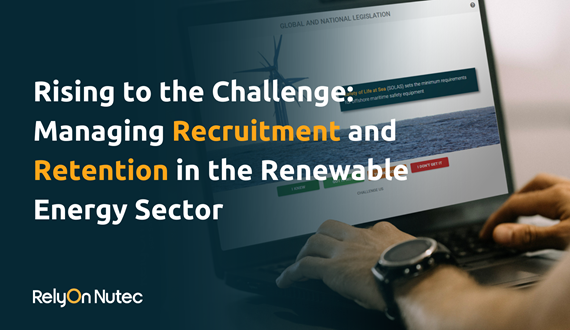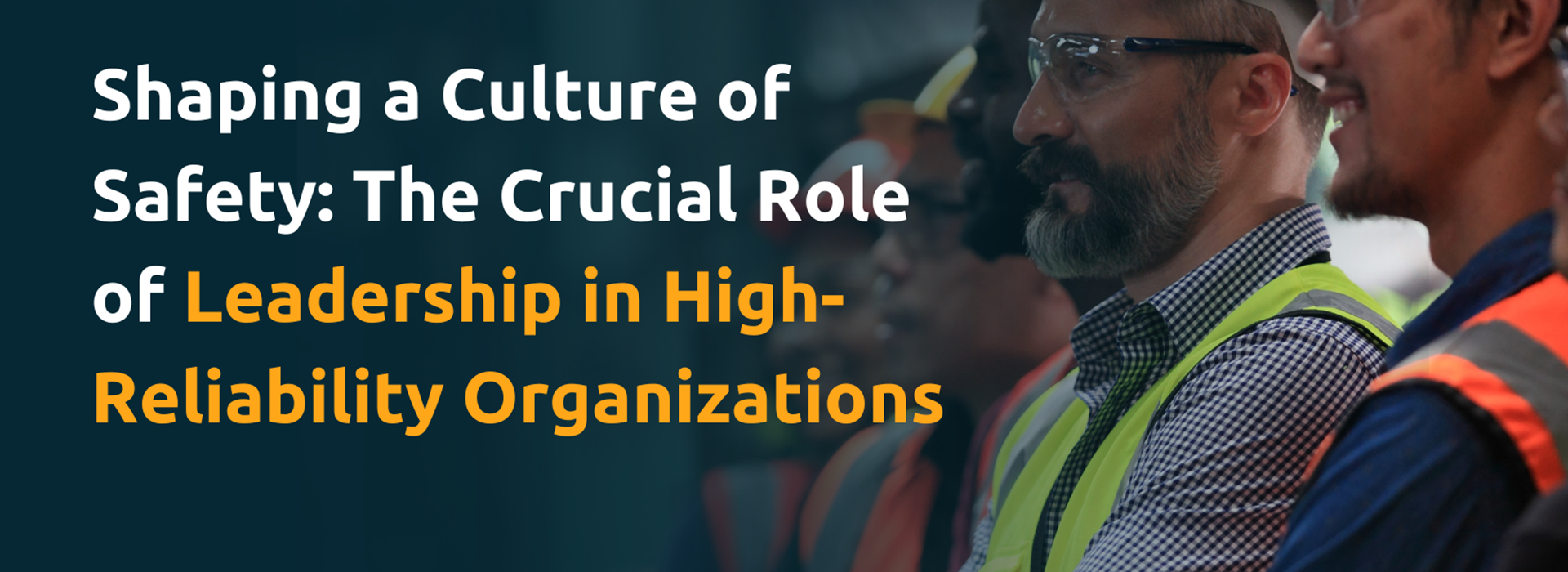Ok
Incidents and suboptimal performance are not inherent to human nature but rather stem from inadequate safety management. The crucial role managers play in shaping a culture of safety within organizations cannot be overstated. While safety standards are paramount for all employees across various industries, the energy sector, with its unique challenges, demands a fresh perspective. In this ever-evolving landscape, managers must transcend traditional practices, realizing the vital importance of leadership, and fostering an environment where safety becomes ingrained in the very DNA of their organization.
We usually attribute safety accidents to individual errors, while in reality the responsibility often lies within the management on an organizational level. It is important not only to enforce safety practices, but to cultivate a culture that supports the empowerment of employees. However, sometimes it is unclear how to create and maintain such a culture, where employees feel safe but also being encouraged to take the lead in decision making and problem solving. Working conditions – whether hard safety related practices or values communicated by management – affect how your employees perceive and adhere to the safety regulations.
Company culture, leadership, and safety standards are interconnected on many levels. Better organizational health is positively associated with safety improvements, and it is true the other way around as well. Companies with a prominent level of safety standards are more likely to work towards a company culture that empowers employees to “own” safety problems to take preventative actions and find solutions to them. Beyond the hard-set systems put in place by regulators, leaders also support safe decision making, proactive attitude towards safety and teamwork.
Culture of Safety: Moving beyond merely reacting to a proactive approach
Hard safety measures are necessary in safety-critical industries, where accidents can lead to fatalities. However, if the gaps between effective management, training and implementation are not handled properly companies can fall behind in maintaining a culture of safety. The interactions between leaders and their employees, who are working on-site, are vital in high-risk industries due to the complexity of operations and the multifaceted nature of the environment they work in.
Moving beyond simply reacting to incidents and external factors to a proactive problem-solving approach, where the team members are encouraged by their leaders and motivated to take ownership of responsibility for safety is crucial. This requires effort on both sides: support for leaders and supervisors and for frontline workers are equally important. CAVU International stands as a beacon in promoting this approach, working alongside organizations to instill a mindset of responsibility and empowerment at every level.
Strategic Safety Solutions by RelyOn Nutec & CAVU International
CAVU International, a RelyOn Nutec partner, offers safety leadership, performance coaching, and continuous performance improvement services for organizations. The partnership is rooted in our mutual focus on safety-critical industries and their commitment to safeguarding both workers and the environment. Together, we deliver efficient safety training, while staying current with technological advancements and employing experienced trainers.
CAVU operates globally across sectors such as oil and gas, energy, law enforcement, maritime shipping, and manufacturing. The company's primary focus is on mentoring, coaching, frontline supervisor training, safety leader training, leadership seminars, and operational excellence keynotes to enhance team behaviors and organizational culture both on-site and virtually.
In addition to collaborating with senior management to improve strategic communication related to corporate culture, CAVU works directly with crews to reinforce team communication, risk mitigation, and decision-making. The core areas of emphasis include leadership fundamentals, continuous improvement, and team resource management. The continuous performance improvement methodology aims to help teams adapt and outpace the market and competitors.
Conclusion
Drawing from their military background, CAVU supports organizations in developing high-reliability teams across roles and capability, from the frontline up to the executive management. CAVU's goal is to eliminate workplace incidents through a standardized process improvement methodology, leading to increased revenue potential, accelerated timescales, and a transformative organizational culture.
Learn more about CAVU and what they do by visiting their website here.
Next read
-

-

-
 Article 14. June 2024
Article 14. June 2024 -

Ensuring Safety and Efficiency: IRATA Rope Access Training for a Safer Work Environment
In industries such as oil & gas and renewables, where accessing challenging locations is common, rope access methods provide a safe and efficient solution. These methods offer technicians a secure means of navigating heights and restricted areas while minimizing environmental impact. However, proficiency in rope access requires proper training and a globally accepted safety education.
Article 4. June 2024 -

Polaris Sells RelyOn Nutec to Mubadala Capital
The acquisition, part of Mubadala Capital’s flagship Private Equity Fund IV, strengthens the asset manager’s footprint in the business services sector.
Article 24. May 2024 -

RelyOn Nutec Acquires Electrical Training and Consultancy Specialist Quercus Technical Services, Fast-tracking European Electrical Capability Build
Effective May 21st, RelyOn Nutec has acquired Quercus Technical Services BV, one of the largest specialist electrical safety and skills training organizations in the Netherlands. The acquisition of Quercus bolsters RelyOn Nutec’s position in the electrical training market and accelerates its European roll out.
Article 22. May 2024 -

-
 Article 2. May 2024
Article 2. May 2024
